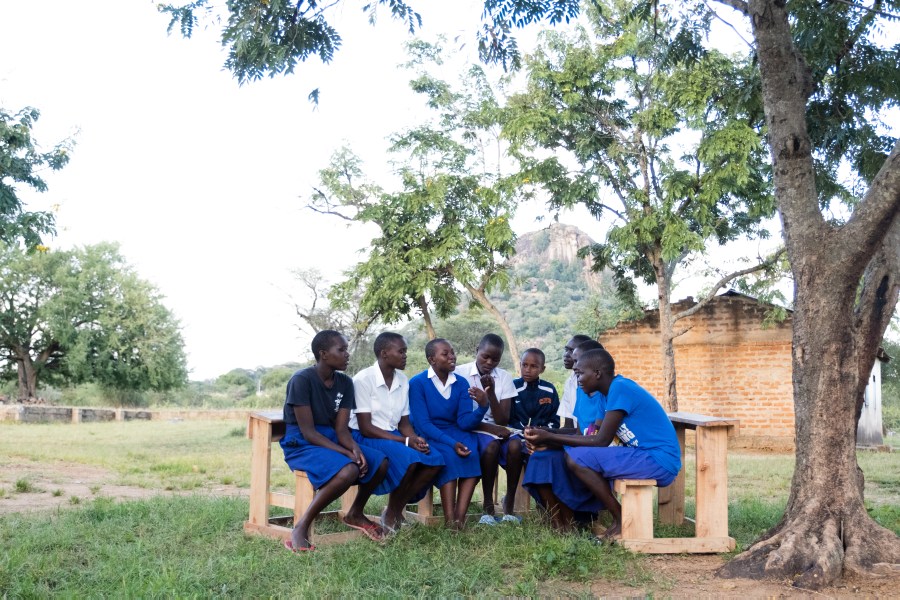Safe Water Opens Doors to Education
Around the world, more than 443 million school days are missed every year because of the global water crisis. Girls’ educations are particularly affected. Not only can contaminated water make them too sick to attend school, but they also shoulder the burden of spending hours collecting water for their families. Losing out on an education impacts girls’ futures, but access to safe water creates opportunities to transform lives.

Munira is an eighth-grader who studies hard at Kacheliba Primary School in Kenya. She is also involved in elective classes focused on how to help others.
“There’s a project that trained me as a ‘peer educator’ to give me knowledge and training to help others,” she said. “As a peer educator, I try to solve [my friends’] problems and advise them. I like to help because many people are struggling.”
However, when Munira first arrived at the school in Kacheliba, things were very different. There was no safe water, so she and her classmates had to trek down to the river. They missed classes and faced many dangers collecting water for drinking, cooking, and washing.
“When I started in the school in 2020, we would struggle with long distances to find water,” says Munira. “Fetching water at the river affected my learning at school because [we missed] lessons. Also, when we went to the river, dangerous strangers would threaten [us].”

Even the river itself could be dangerous. Munira shared how she narrowly escaped a flash flood while collecting water.
“One Saturday, my friends and I went to the river to get water, wash our clothes, and take a bath. The water started increasing, and I was swept away. Luckily, I found a stone to hold onto, but it was risky because the wind was blowing so hard. A man came in and grabbed my hand. After that, I swore to never go to that river.”
Shortly after the incident, Water Mission and The Poul Due Jensen Foundation installed a safe water solution at Munira’s school. Now, the girls can spend their days focused on studies instead of risking their safety to collect water. Munira says that the health and wellness they experience by having safe water has emotional benefits.
She adds that safety, educational opportunities, and good health come from access to safe water. This makes “water a must for girls in school. It gives us self-esteem. It builds confidence so we know if we have a problem, we can solve it.”
No longer struggling to collect water and fight water-related illnesses, Munira’s dreams are focused on helping others.
“I want girls’ lives to be good. I want my friends to be able to decide what they want for their own lives and then fetch it.”
